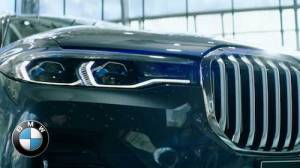The COVID-19 pandemic has upended life as we know it, rapidly moving from a healthcare crisis to an economic crisis, and transforming companies in new and unforeseen ways. To meet the needs of their customers in the “New Normal”, the “Next Normal” and beyond, automotive companies are turning to new technologies and innovative solutions.
When the future seems as unpredictable as it is now, that’s an opportunity to shape it, and forward-thinking businesses are seeing these current challenges as ways to create a bright and more connected future. As former Intel CEO Andy Grove once said, “Bad companies are destroyed by crisis; good companies survive them; great companies are improved by them.”
But when the road ahead is bumpy and filled with traffic – and the map has all but disappeared – how can automotive businesses drive their way towards a better tomorrow, and bring their customers along for the ride?
For less dynamic companies, the answer is to simply run on autopilot or to close their eyes and floor it. But for BMW, the solution lies in carefully creating exceptional digital journeys where they’re in complete control.
How BMW transformed in a time of upheaval
As social distancing measures swept the globe, shops shuttered their doors and workplaces went dark, many companies were suddenly faced with moving to remote workforces. For BMW, the biggest challenge was making sure that their most valuable assets – their employees – were kept motivated and connected.
To tackle this, they accelerated their use of digital solutions and were pleased by how quickly their workforce was able to adapt to operating in a decentralised environment. Best of all, they were able to make the transition in less than two weeks. That accelerated pace allowed them to be where their customers needed them to be, and when they needed them to be there.
Dealing with the shifting expectations of those customers presented another issue. In a world where visiting a dealership was no longer an option for their customers, BMW turned to contactless interactions. They used video conferencing to connect customers with experts who could answer their questions in real time, and then added contactless delivery and contactless test-drive options.
This ability to remain agile and pivot to meet customers’ needs was made possible by their reliance on Salesforce digital platforms, and by putting themselves ahead of the curve, BMW has established new ways of doing business that will carry on even when the current moment has passed.
BMW used Salesforce technologies to deliver potentially game-changing remote services in a time of crisis, and by innovating to overcome adversity, they’ve positioned themselves to draw a map of the future.
What does the future of automotive retail look like?
When it comes to the future of the automotive industry, ensuring a safe workplace will be a top priority. This likely means increased security and well-being checks, as well as the further growth of remote working. Another priority will be to improve data quality and analytical positioning, especially when it comes to making quick strategic decisions.
Digital transformation has long been an industry buzzword, but the COVID-19 crisis has highlighted the importance of staying nimble and being able to make lightning-fast decisions based on actionable data insights. With that in mind, automotive businesses will prioritise digitalisation, improving their online processes, collaborative tools, and contactless services, and concentrating on the increasingly important customer journey.
According to a 2020 Capgemini automotive sales recovery customer survey, 60% of respondents say that they’re more likely to buy cars online than before the pandemic, and 89% of hesitating customers say that an attractive offer or a good customer experience could persuade them to buy, so there’s little doubt that providing exceptional digital journeys is paramount in the new climate.
For automotive companies looking to thrive in the Next Normal, CRM platforms like Sales Cloud offer a way to get a 360° view of the customer and provide the personalised service they desire. And, for companies looking to re-skill their employees to meet their shifting needs, Work.com offers several solutions, as well as helpful tools for safely reopening workplaces after COVID-19.








